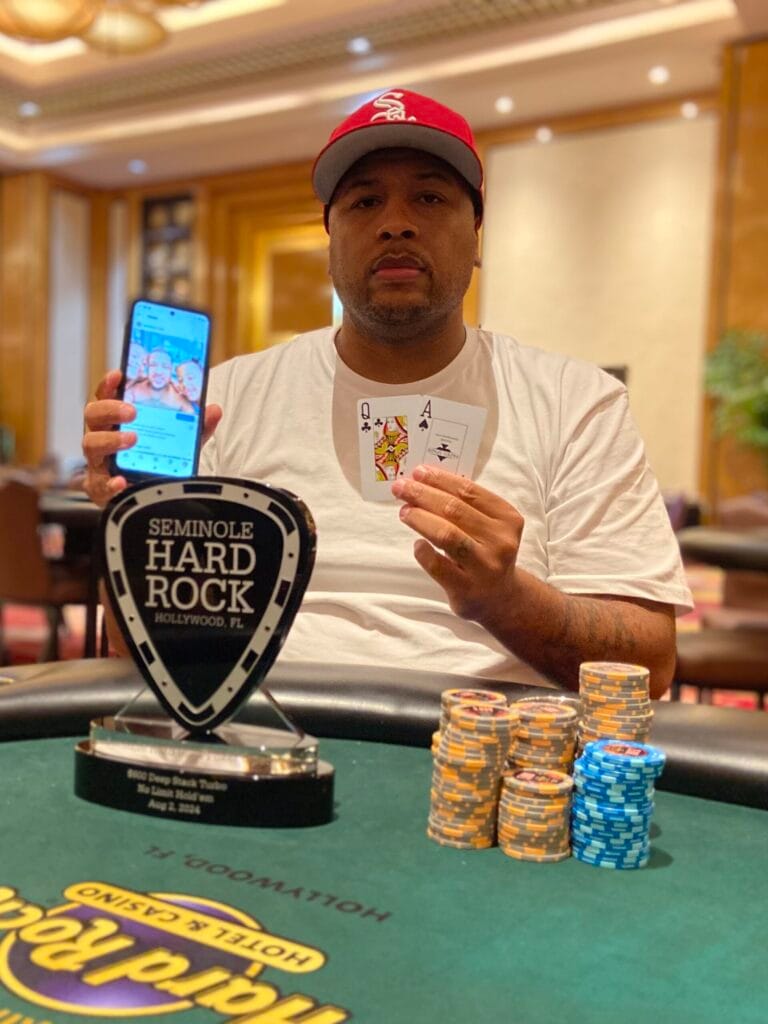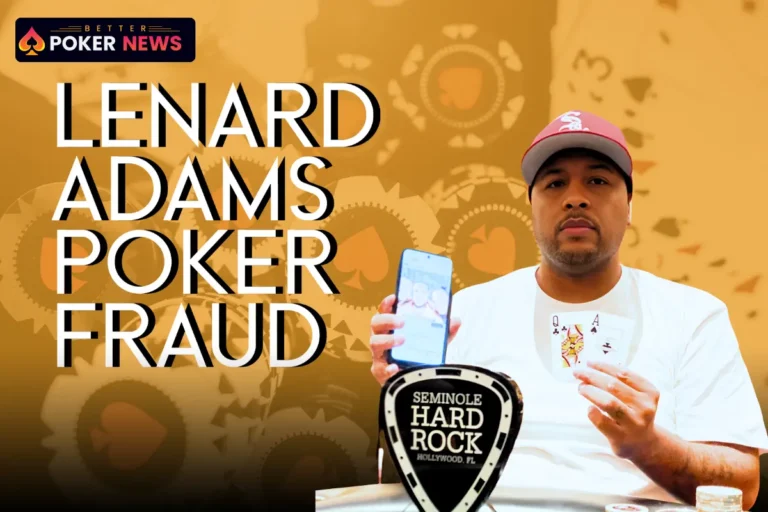Lenard Adams, better known as “Lucky” in poker circles, has once again come under scrutiny, this time for allegations of scamming poker players across the United States. While he may have over $150,000 in recorded live tournament earnings, Adams’ reputation is tarnished by a history of criminal behavior and fraudulent schemes that continue to haunt him.

A Criminal Past Comes to Light
Adams’ troubles began long before the poker table. In 2017, he was charged in Indiana with a string of serious offenses, including fraud, intimidation, kidnapping, and rape. Investigators alleged he posed as a neurosurgeon who collected donations to buy gifts for children in need. Instead, he used this ruse to steal nearly $70,000 in cash and jewelry from unsuspecting victims.
Although many charges were dropped, Adams was convicted in 2019 and sentenced to four consecutive 18-month sentences, including a work-release program. He was ordered to pay $14,127 in restitution to his victims and write them apology letters.
Poker Livestream Fame and Controversy
Adams re-entered the poker spotlight in 2021, appearing on the popular livestream Hustler Casino Live. Competing against poker legends like Phil Ivey and Garrett Adelstein, Adams gained attention for his bold gameplay. However, his brief rise to fame ended when producers discovered his criminal record and subsequently banned him from the show.
Allegations from Florida to Las Vegas
Adams’ troubles didn’t end with his ban from Hustler Casino Live. Multiple poker players have come forward accusing him of scams involving high-stakes private games.
In January 2024, a young poker player, referred to as “Kevin” for anonymity, encountered Adams at the Seminole Hard Rock Hotel & Casino in Florida. Kevin alleged that Adams promised to stake him in a private game if he participated in a “massive flip.” After Kevin paid up, Adams allegedly pressured him for more money and then disappeared.
Kevin’s experience left him disillusioned. “It should have been obvious it was a scam,” he admitted, explaining that Adams’ appearance on livestreams gave him credibility. The incident cost Kevin a significant portion of his bankroll and ultimately led him to quit poker altogether.
Similarly, in May 2023, a poker player using the alias “dcdan” reported a similar scam on the Poker Fraud Alert forum. According to “dcdan,” Adams promised to stake him in a high-stakes private game at ARIA in Las Vegas. Before the game, Adams requested a $7,000 loan, which he never repaid.
A Pattern of Deception
Adams’ alleged scams follow a troubling pattern: he uses his reputation as a professional poker player to gain trust, only to exploit that trust for financial gain. His criminal history and repeated allegations highlight the darker side of the poker world, where trust and deception often intersect.
Lessons for the Poker Community
Adams’ story serves as a cautionary tale for the poker community. Players are urged to remain vigilant, verify claims, and approach offers that seem too good to be true with skepticism.
The poker community thrives on integrity and camaraderie, but as Adams’ case shows, not everyone at the table plays by the rules.
Have you encountered a similar situation in the poker world? Share your story and help protect others.

